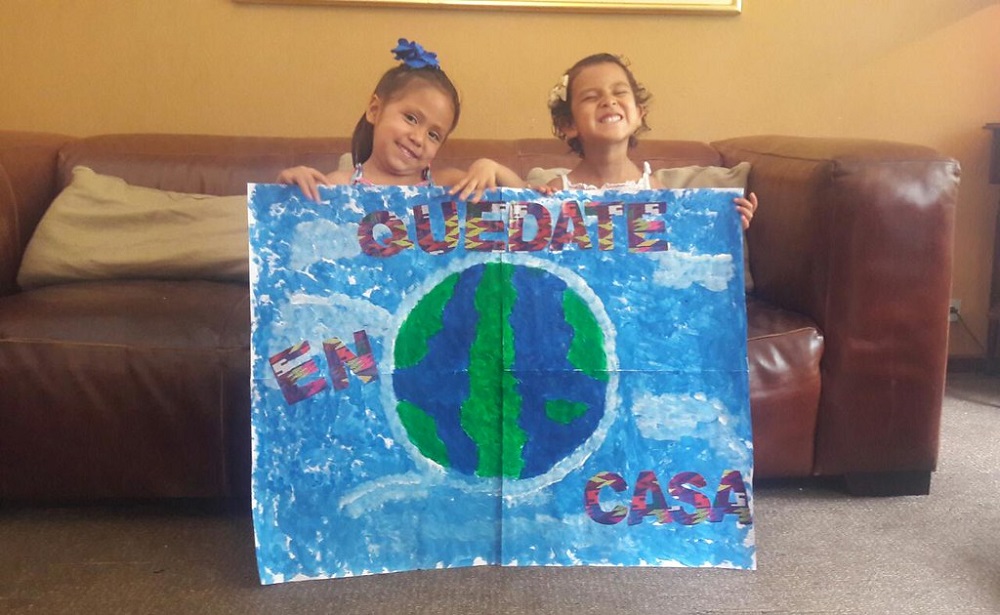In April, Doc Castro shared an update with us about COVID-19 in Guatemala. With so many developments surrounding the virus in recent months, we asked Doc to update us again about the current situation. Today, we’re sharing his most recent update.
Can you describe the current COVID-19 situation in Guatemala?

It has been 3 ½ months since the pandemic reached our country. The first person infected was diagnosed on March 13th and died a few days later.
Now, we are in the exponential period of rising cases close to reaching the pandemic’s peak. As of June 18, 2020, there have been a total of 11,868 people infected with 2,290 recuperated and 449 deaths in Guatemala. Today (6/19/20), saw the highest number of single-day infections, 617 new cases.
Despite this data, the infectious mortality rate in Guatemala is still lower than in other countries and remains close to the world’s average.
Where are you seeing outbreaks of the virus? What conditions are contributing to these outbreaks?
The virus is present all over the country, but the central region (Guatemala City and its surrounding municipalities of Sacatepéquez and Chimaltenango) remain the most affected.
Why? The central region is the most urban with a more concentrated population living and working there. There is more movement to and from the central region due to job opportunities, services, and transportation. It is also the main entrance to the country by air, which was the source of the infection here.
Early on, the spread seemed to be limited and precautions were ample. What is the current status of medical resources?
Guatemala’s health system was suffering resource shortages of all kinds before the pandemic. A lot of preventable diseases that otherwise have become secondary in developed countries continue to demand attention here for health promotion, preventive measures, and treatment efforts.
Now, the system is close to collapsing, because on top of these previously existing issues. COVID-19 is a priority and needs specialized and sophisticated hospital care. Health personnel are suffering from exhaustion. Additionally, 442 health personnel have been infected and 8 doctors have died from the virus. The health system is in urgent need of improvements in testing and contact tracing.
What changes have you seen in Guatemala over the last 2 months?

There have been similar changes as in the rest of the world. Radical changes have happened in everyday life for everyone. In an already inefficient system, all schools are closed. These closures make formal learning almost impossible for most children despite efforts for distance learning. Public transportation has been prohibited and only essential services such as food, health, and public safety remain open.
Most families have been staying at home for almost 3 ½ months. Prolonged restrictions have serious disadvantages like increased fatigue and increased poverty. Most of our population (60%) live in poverty and need to work informally to survive, exposing themselves to potentially ill people. The pandemic is increasing the suffering of families and children, with the most vulnerable affected at higher rates.
How have you adapted precautions and care at Dorie’s Promise?
We successfully implemented our own health-disease prevention measures 11 years ago. Now, I am adapting to the pandemic by constantly learning, updating, and improving our controls, health education, and surveillance methods.
I am making extra efforts to refine my emergency protocols, making them practical and clear for everyone, in case the virus affects our home. Hopefully, it won’t happen, but this moment demands us to be prepared for the worse as we hope for the best.
We need support and resources to be prepared. My friends in the medical community are ready to assist me in the treatment of our children if needed in the future. Telemedicine in on the way for consultations and treatments.
What are you most concerned about currently related to the virus?
Because of my commitment to our children, my main concern is for me to contract the virus. If I become seriously ill, I will not be able to care for our children. For our kids, I want them to remain healthy and strong.
How is the health of our children and staff?

So far, we have not encountered a single case of COVID-19. We are being very cautious about anyone who may be ill or near anyone ill, asking staff to remain home until we are sure he or she is not contagious as to not put us in danger. I also provide guidance and protocols to follow at home and I personally follow up on outcomes.
Thank God, our children are healthier than ever! Because they are not going out and schools are closed, they are not exposed to many viruses, including the coronavirus. Mirna, our nurse, and I are updating vaccination schedules for everyone, starting testing to rule out primary tuberculosis, updating growth and development checkups as a part of our pediatric surveillance protocol by ages, and trying to find resources to vaccinate against seasonal influenza.
Anything else, you would like to share?
I am sure God continues to bless and inspire humanity, especially our spiritual and christian journey. The pandemic is making me, and hopefully, many others, find enough time to reflect. As my daughter pointed out recently when I asked her how was she coping with his time and these circumstances, she replied “Daddy, relax.” For me, this is a time of insight, learning, and transformation.
Be safe, happy, and find the best and most powerful ways to serve others.
Yours faithfully,
Doc
